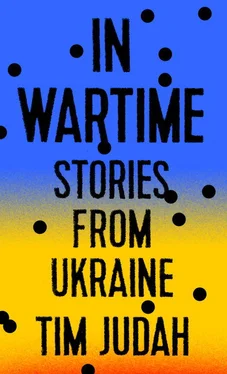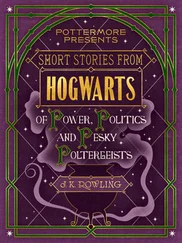In much of Ukraine, small villages tend to straggle and run into one another. Here things are a bit different. Like almost all of the rest of the country the land is flat but, oddly since it is bounded by rivers, water has always been a problem here. With the imposition of Russian rule from 1812, the Russians expelled most of the local Muslim Tatars who roamed the steppe here with their characteristic Karakul sheep, which can thrive in areas with little water since they can store fat in their tails. (If Karakul means nothing to you, think Astrakhan hat or coat.) Now the Russians had to repopulate the place: Bulgarians came, as did Cossacks from the east, Christian Albanians, Gagauz (who are Christian but speak a variation of Turkish), Russian and Ukrainian peasants, Russian Old Believers and thousands of Germans who trekked from Prussia, what is now Poland and elsewhere. For their loyalty they were given land and were free peasants, unlike serfs in the rest of the empire. For this, they and their descendants were eternally grateful. Today two communities who leavened the Balkan-like makeup of this region are gone: the Jews, who mostly died in the Holocaust when Romania briefly retook the region, and the Bessarabian Germans.
The end of the Bessarabian German story constitutes a fascinating detail ignored by all mainstream history books of the region, not least because of the bad light it casts on the Soviets in those years which helped create Ukraine within the borders it has today. When Stalin’s troops occupied Bessarabia in 1940, part of the deal with Hitler was that its Germans would be sent “home to the Reich.” Notices were pinned up in German areas informing people of this. Some 400 German members of a “commission”—SS men, according to Edmund Stevens, an American journalist who witnessed the Bessarabian Germans arriving across the new Romanian border—were then sent in to persuade people to leave and itemize their property. They would be given exactly the same when they arrived at their destination, they were told, which for many was to be the property taken from Poles in occupied Poland. Once they crossed the border the SS separated able-bodied men from their families because they were to be inducted into the German army, which would soon attack the Soviet Union. Stevens wrote that these men were particularly valuable to the Nazis because “they knew every inch of the frontier zone, and most of them spoke Russian in addition to German and Romanian.” He witnessed them cross into Romania in covered wagons like those their ancestors would have taken to get here and wrote that they shouted “Heil Hitler!” as they left the USSR. Those who sooner or later obtained land and farms taken from Poles would lose everything at the end of the war as they fled before the advancing Red Army. Meanwhile, at the same time as the Germans were leaving the region, Jews were fleeing from anti-Semitism in Romania into Bessarabia, the Soviets were shooting and deporting political undesirables and the more prosperous peasants and many Romanians (or Moldovans) were crossing out of the USSR into Romania.
Today, determining exactly who lives in Bessarabia is a problem, because there has been no census in Ukraine since 2001 and anyway, in such a mixed area identities are even more fluid than in some other parts of the country. If someone has an Albanian, a Moldovan, a Bulgarian and a Gagauz for grandparents but speaks Russian, which is the lingua franca here, then being Ukrainian is not so obvious. Also, as in other regions of Ukraine there was immigration from other parts of the country and the rest of the USSR during Soviet times, and since the collapse of the country, a general decline in the population. The young are leaving to work elsewhere and the population is becoming older. In 1930, according to ethnographer Prigarin, there were 900,000 people here. In 2012 there were estimated to be 577,574.
According to the 2001 census 40 percent declared themselves Ukrainian, 21 percent Bulgarian, 20 percent Russian, 13 percent Moldovan, with the rest split between other small groups. According to the politician Kisse, this is wrong. Only 7 percent are really Ukrainian, he says, because many people declare themselves as such even though they may not be. When it comes to what people regard themselves as, and what language they speak, statistics in Bessarabia do not lend themselves to the same sort of interpretation as they might elsewhere. Speaking Russian as your mother tongue does not indicate here, as it does not elsewhere in Ukraine, that you regard yourself as Russian. This is something many in Russia either don’t understand, or don’t want to understand.
Kisse is a controversial man. When I met him in his office in Odessa, the fifty-seven-year-old had a Ukrainian flag behind him and was dressed in a Ukrainian Olympic team tracksuit. His detractors say he is an opportunist and survivor and indeed he has come far. One of his first jobs was as a tractor driver. Now they say, if it had looked as though Odessa and the south were not going to stay part of Ukraine, like Crimea, he would have adjusted to suit the time. That is what he has done, being one of Bessarabia’s deputies in the Verkhovna Rada. Before the Maidan revolution he was a member of Viktor Yanukovych’s then ruling Party of Regions. Now he is creating a local party of his own called Our Land, which is suitably ambiguous as it could mean Ukraine, or Bessarabia, or just a village.
Like him or loathe him, what he says about many of his constituents, whom he concedes are often “pro-Russian,” is true not just for Bessarabia but for much of Ukraine as well. “The best period was in Soviet times.” In the 1960s and ’70s especially, he explained, sports centers were built, palaces of culture, which act as local community centers, went up, roads were built, people got gas and piped water for the first time and irrigation channels were dug. Money was channeled into culture and local, national folk troupes. “Bulgarians performed all over the Soviet Union,” he said. “Through culture the Soviets reached the hearts of the people.” But there was a catch. Education was in Russian, which came with its own culture and the gradual political effect of Russification. So, many of those whose ancestors came in the nineteenth century retained vague, positive images of Russia, because it was thanks to Russia that their ancestors had come to put down roots here; positive memories of the USSR outlasted negative ones and language helped make a link between Russia and the Soviet Union. “This is what remains in people’s memory.”
And now, Kisse told me, since Ukraine had been independent “we can’t talk about the development of Bessarabia.” Privatization and the dividing up of former collective farms and declining social security provisions had made people more and more worse off he said. You can argue that this is not in fact true and that most people are better off in many ways than they were before, but as always in politics, it is perception that counts, not reality. Many people are still pro-Russian, said Kisse, but now they are far more inclined to keep quiet about this than they would have been before. Now “the vast majority are for Ukrainian unity.” Surely that was a contradiction, I asked. Yes, he agreed, it was. On May 2, 2014, some forty-two anti-Maidan, pro-Russian activists died in a fire in Odessa after running street battles with pro-Ukrainians in which some five others died. Then the declaration of rebel republics in the east did not result in the regions being snapped off cleanly like Crimea and people becoming instantly better off, but in war. In those circumstances, the wind began to change.
In the center of Tatarbunary, a couple of hours’ drive south-west of Odessa, there is a classic Soviet-era memorial. One man holds a flag aloft, one crouches with a rifle and one brandishes a pitchfork. It commemorates the Tatarbunary Uprising of September 1924, when a group of locals, with covert Soviet help, organization and arms, rose up against Romanian rule. The leader went under the nom de guerre of Nenin. Once he and his men had seized the town, he summoned the locals and, standing on a table taken from the town hall, proclaimed the founding of a Moldovan People’s Republic. Red flags were raised. Tatarbunary was a good place to start the revolt because much of the population was Ukrainian or Russian and resented the government’s policies of Romanianization. The region had been under martial law since its annexation in 1918. So, when Nenin told people that the Soviet cavalry was on the brink of entering Bessarabia, many rallied to the call. Within a few days it was all over. At first the police summoned help from a posse of some forty Bessarabian Germans from the nearby town of Sarata and then Romanian troops arrived to finish off the revolt. Some 500 were arrested, 279 put on trial and the following year 85 were convicted.
Читать дальше












